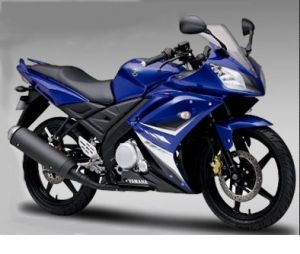 Y
Yamaha Motor Company, the world's second biggest motorcycle maker, is having a tough time retaining people in its Indian subsidiary, even as plans of expansion and launch of new models amid intense competition becomes imperative.
The company has had three Japanese executives for the post of managing director over three years.
In addition, its senior and mid-level marketing team has seen immense churn, as employees actively scouted for further opportunities.
Pankaj Dubey, national business head, recently put in his papers to explore opportunities outside the automotive industry.
He has been replaced by Roy Kurian, who was head of the south zone.
A managing director, Tsutomi Mabuchi, was abruptly asked to come back to Japan and join the mother company even before he completed a year at the Indian subsidiary.
The man behind Yamaha's turnaround in India, Tomotaka Ishikawa, joined rival Bajaj Auto as an advisor.
CHANGING HEADS
MD & CEO |
| Tomotaka Ishikawa |
2005-Jan 2008 |
| Tsutomi Mabuchi |
Jan 2008-Dec 2008 |
| Yukimine Tsuji |
Dec 2008-Oct 2010 |
| H Suzuki |
Nov 2010-present |
Yamaha's talent migration comes at a time when the company had finally got its footing right in the Indian market with the success of models such as the FZ series and the R15.
Prior to 2008, the Japanese company was largely neglected by consumers for lack of excitement in its product range.
Intense competition in the performance biking segment (150cc and above) led by Pune-based Bajaj Auto resulted in the company not being able to meet its set target of sales and market share last year.
While the two-wheeler industry grew 30.5 per cent during 2010, selling 11.28 million units as compared to 8.64 million sold in 2009, Yamaha sales grew 18.4 per cent to 260,000 units.
During the same 12-month period, sales of market leader Hero Honda grew nearly 16 per cent to five million units, while that of Bajaj Auto increased by 58 per cent to 2.34 million units as compared to 2009.
Its market share, thus, shrank marginally to 2.29 per cent last year from 2.52 per cent in 2009. It had actually said during the year that it aimed at reaching a 10 per cent market share target by the end of 2010.
It has now officially reset this for 2012, with an aim to also double exports to 140,000 units.
The company has was also planning to introduce a range of low capacity automatic scooters into the two million unit-strong India scooter market last year but is yet to take a decision on it.
The domestic scooter market is dominated by Honda, its old-time rival, whose share is more than 45 per cent.
A feasibility study for the scooter launch was also carried out, following which the company had said the market for scooters was growing robustly in India and it would surely launch these soon.
A detailed questionnaire seeking clarity on the company's plans went unanswered at the time of going to press.
An senior market analyst, on condition of anonymity, stated: "Yamaha brought itself back out of nowhere two years back. It kept raising the bar, with not just new volume generating launches but with the introduction of a few imported vehicles as well."
Adding: "Although the Indian market grew at a scorching pace Yamaha's growth has been much below expectations.
This is because of its non-existence in the voluminous entry-level segment of 100cc, where Hero Honda and Bajaj enjoy an upper hand."
Image: A Yamaha bike


 Yamaha Motor Company, the world's second biggest motorcycle maker, is having a tough time retaining people in its Indian subsidiary, even as plans of expansion and launch of new models amid intense competition becomes imperative.
Yamaha Motor Company, the world's second biggest motorcycle maker, is having a tough time retaining people in its Indian subsidiary, even as plans of expansion and launch of new models amid intense competition becomes imperative.